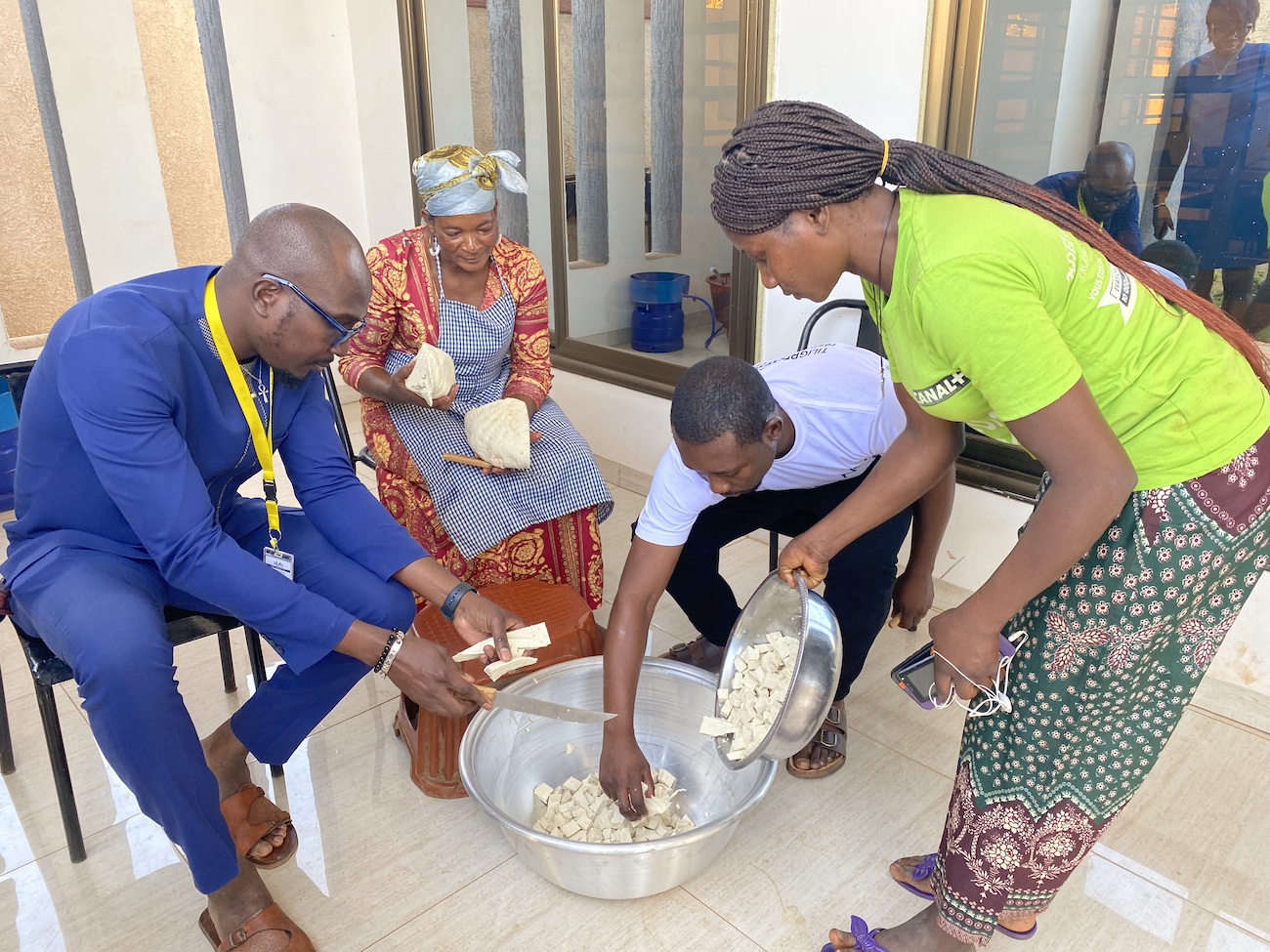Tofu Training Benefits Rural Women
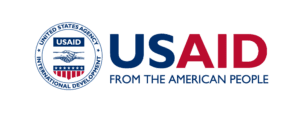
As part of the USAID-funded Tiligre Initiative for Farmer’s Resilience (TIFR) project, farmers have been learning about the best soybean processing practices in the Central Plateau Region of Burkina Faso. Nuru Burkina Faso supports farmer-owned and farmer-led cooperatives to enable local communities with the economic freedom to make meaningful choices, build resilience to climate change, and reinforce stability in their communities. The soybean processing training is a critical next step in enabling community members, specifically women, to pursue income-generating activities with soybean harvests and support improved nutrition for farmers, their families, and their communities.
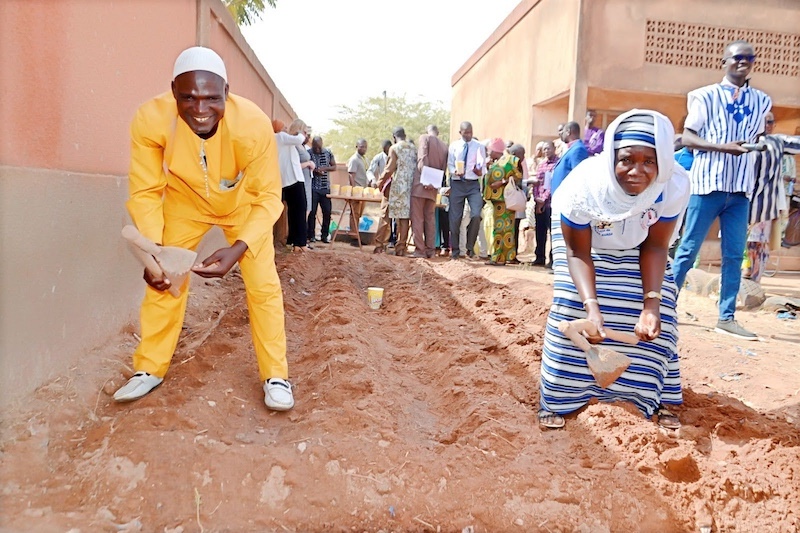
Nuru Burkina Faso farmers, 2023
TIFR Project
This training builds upon TIFR’s work with farmer cooperatives in the Central Plateau region of Burkina Faso. TIFR offers a training and coaching program for emerging cooperative agribusinesses using a “Training of Trainers” (TOT) approach. This approach focuses on educating cooperative agribusiness leaders on key knowledge that they can then pass on to their cooperative members. Cooperative members learn best practices about business planning, financial management, and climate-smart practices to evolve into more professionalized cooperatives. As part of this training approach, the TIFR project builds cooperative resilience and sustainability by working closely with farmer-led cooperatives.
The Critical Role of Farmer Cooperatives
TIFR supports farmer cooperatives by lending an initial crop input package. Through their farmer-owned cooperatives, farmers can choose between a groundnut crop package, a soybean crop package, or both packages offered by their cooperatives. The soybean crop package consists of improved drought-tolerant seeds, Purdue Improved Crop Storage (PICS) bags to reduce post-harvest loss, and inoculant (a natural fertilizer alternative) to improve soil quality and support soybean growth and yields. After the harvest, cooperative members repay the cost of the crop input packages to their cooperatives. This supports the cooperative’s long-term sustainability and its ability to continue creating opportunities for farmer members through the cooperative’s revolving fund (a cooperative-owned fund paid into by members and borrowed by members as needed).
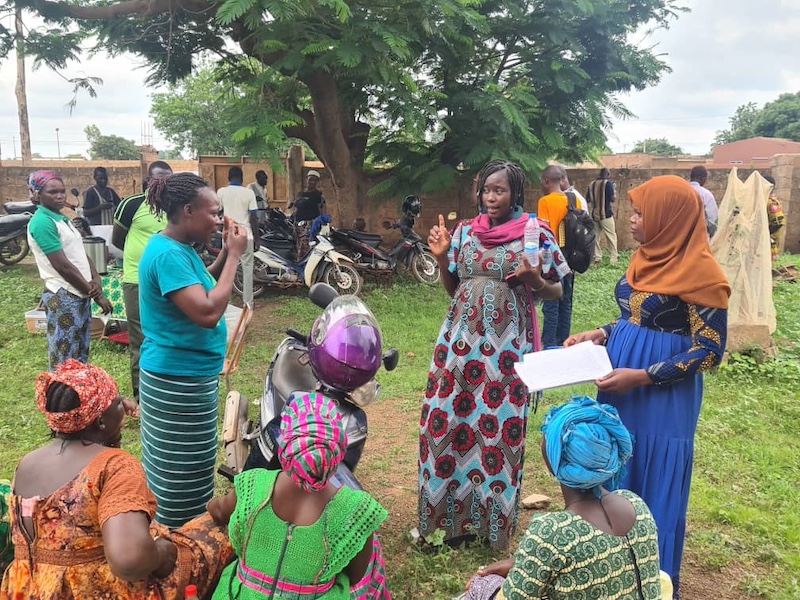
Financial Inclusion Training, Burkina Faso, 2023
To support improved crop yields, TIFR has also trained farmers on the appropriate use of ignitia’s weather service, enabling farmers to read and interpret weather forecast messages accurately so they can make better informed decisions on planting, crop care, and harvest. Timely farming practices can support higher yields and greater opportunities for increased income for farmers. The weather forecast training has been provided alongside financial inclusion training to encourage access to and proper usage of quality financial services within the cooperatives and by individual farmers. Farmers are trained through TOT on financial inclusion and coached on how to set up and use mobile money. In the future, farmers can sell their groundnut and soybean crops and make purchases from other sellers.
Soy: A Climate-Smart, Nutritious Crop
Burkina Faso, like other countries in Sub-Saharan Africa, is disproportionately impacted by the effects of climate change. Unpredictable weather patterns, erratic rainfall, and droughts increase farmers’ risk of losing both crops and income. For the farmers served by Nuru Burkina Faso, it is essential to grow drought-tolerant crops like soy using climate-smart practices. Soy is grown mainly for its nutrient-rich seeds and also for its oil, driven by farmers’ efforts to satisfy the increasing demand for various feed, food, and industrial products (Feed the Future). Soybeans are not only able to withstand limited rainfall, but they are a nitrogen-fixing crop, which means that they pull nitrogen from the surrounding air and push it into the soil, supporting healthy soil and crops. Additionally, soybeans are rich in protein and micronutrients. The combination of a robust nutritional profile and affordability makes soybean a sustainable crop that improves household diets and supports overall health.
Training on Making Tofu Skewers
In Burkina Faso, soybean production involves both men and women; however, soybean processing is largely undertaken by women. By providing women with essential training to cultivate soybeans, enhance their processing skills, and expand their businesses, TIFR equips women to substantially boost yields, elevates their roles within their households and communities, and supports gender equity within the communities it serves. TIFR encouraged cooperative members to produce soybean and acquire the skills necessary to properly process soy into tofu. This will enable farmers to sell tofu skewers and other soy by-products, supporting greater financial resources for the cooperatives.
Earlier this year, TIFR facilitated tofu processing training for 89 farmers over the course of two days. During training, women farmers learned how to increase their product marketability by properly processing soy into tofu skewers. Training also covered technical aspects of reducing food loss and waste. By implementing what they learned, farmers are now equipped to reduce post-harvest losses and meet the local demand for nutritious food, while improving food safety standards. Through their cooperatives, these women are now able to access the equipment needed for proper soy processing, ensuring they can increase their household incomes and improve their families’ nutrition.
Soy Processing
The soybean variety grown by TIFR-supported cooperatives is good for making soybean paste that can be turned into tofu skewers and sold locally. The processing is as follows:
- Step 1: Remove soybean impurities and soak for 4-6 hours.
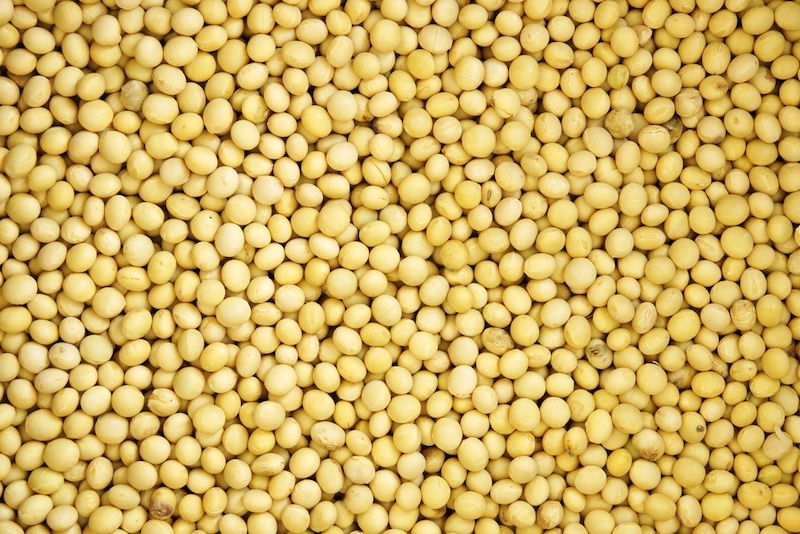
Clean soybeans ready to be ground
- Step 2: Grind soybean into a paste and wrap with a cloth.
- Step 3: Place wrapped paste into bucket with a large basin underneath before pouring hot water over the paste.
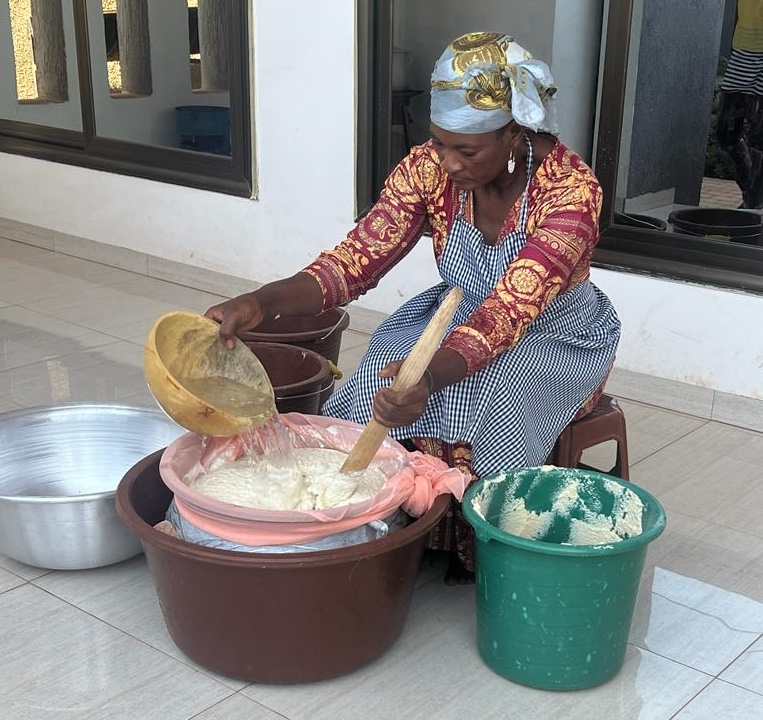
Hot water is poured over soybean paste to make soy milk
- Step 4: Continue stirring the wrapped paste while soy milk collects in the basin below.
- Step 5: Bring collected soy milk to a boil and add a coagulant (vinegar, tamarine, or lemon) into the pot to create curds.
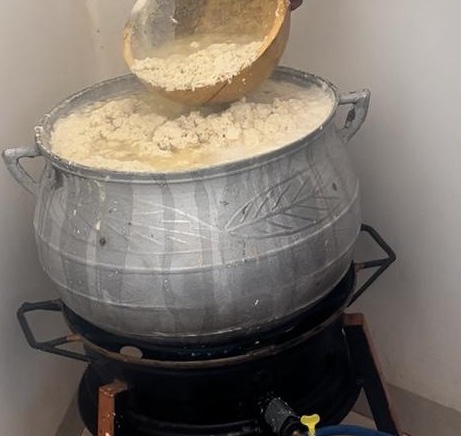
Soy milk curds
- Step 6: Pour curds into a bag, and then tighten and compress the bag to squeeze out excess water, creating uncooked tofu.
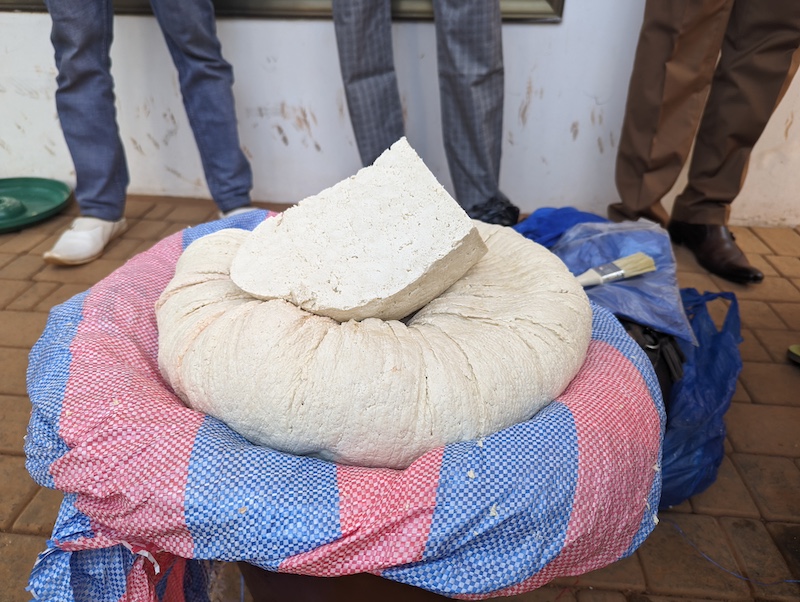
Uncooked tofu
- Step 7: Remove the tofu and cut into pieces.
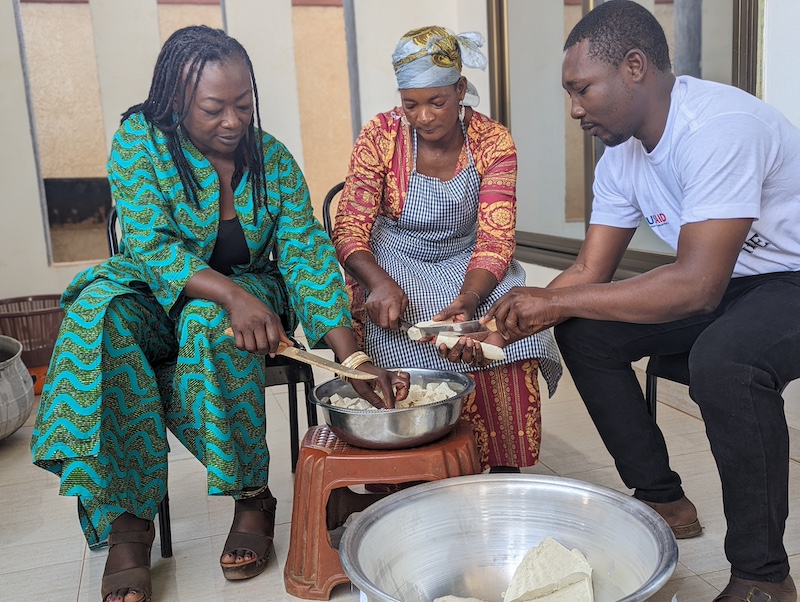
Cutting tofu into pieces to prepare for skewers
- Step 8: Lightly fry the tofu with oil and stick onto skewers to be eaten or sold!

Fried tofu skewers ready to be eaten
Mariam, a woman from the Central South Region who took part in the tofu training program shares, “I enjoy eating soy brochettes, as do my children. In addition to their nutritional value, the price is affordable and you can find them almost everywhere. It’s just that I’d never had the opportunity to watch soy being turned into skewers before. With the practical training we’ve received, I’d like to start selling skewers too.”
Nabolé, president of a farmer cooperative in the Central Plateau Region, shared, “The training we received on soybean processing was much appreciated by our cooperative. We were able to follow the whole transformation process, from the grinding of the seeds into paste, to the soy skewers themselves. I’m very happy to have attended this training. […] I eat soy kebabs very often, but I didn’t know that soy milk existed or that it could be used to make soumbala [a traditional West African fermented seed dish]. I think it would be good to include it in our diet as we rarely eat meat for lack of means and soy is a really good alternative, as it tastes like meat and is good for your health.”
Next Steps for Farmer Cooperatives
At the end of the training sessions, the women farmers expressed their delight at having acquired new knowledge that would enable them to process soybeans for their own consumption and improve their tofu processing practices. Additionally, they look forward to undertaking new income-generating activities centered around soybeans. At the end of the workshop, the cooperative leaders were equipped with the appropriate knowledge and resources to make tofu from soy and create grilled skewers. These cooperative leaders will now pass on their knowledge to the 1,500 farmer cooperative members, paving the way for increased income for farmers throughout the region.
This publication is made possible by the support of the American People through the United States Agency for International Development (USAID). Its contents are the sole responsibility of Nuru Burkina Faso and do not necessarily reflect the views of USAID or the United States Government.


